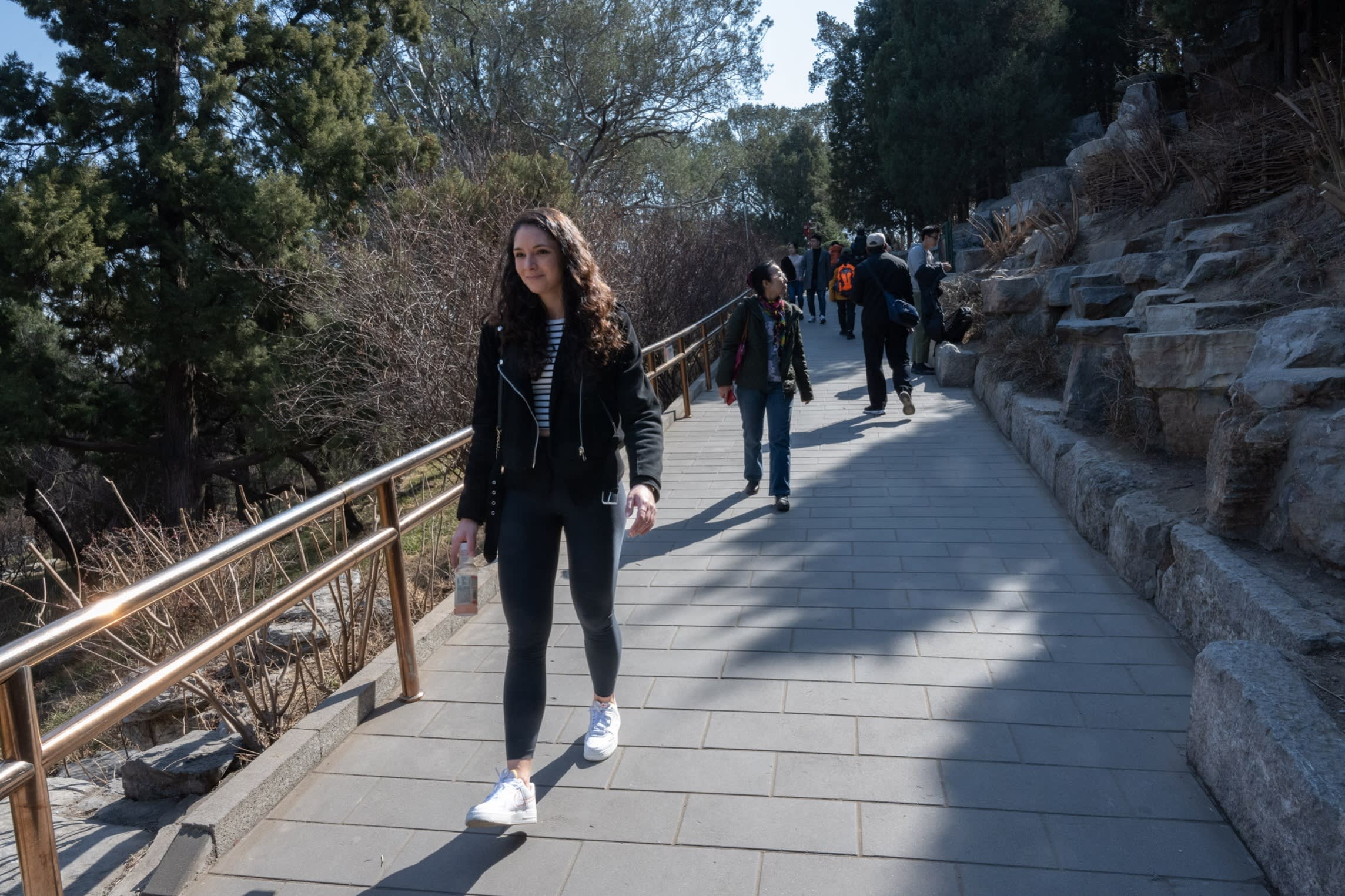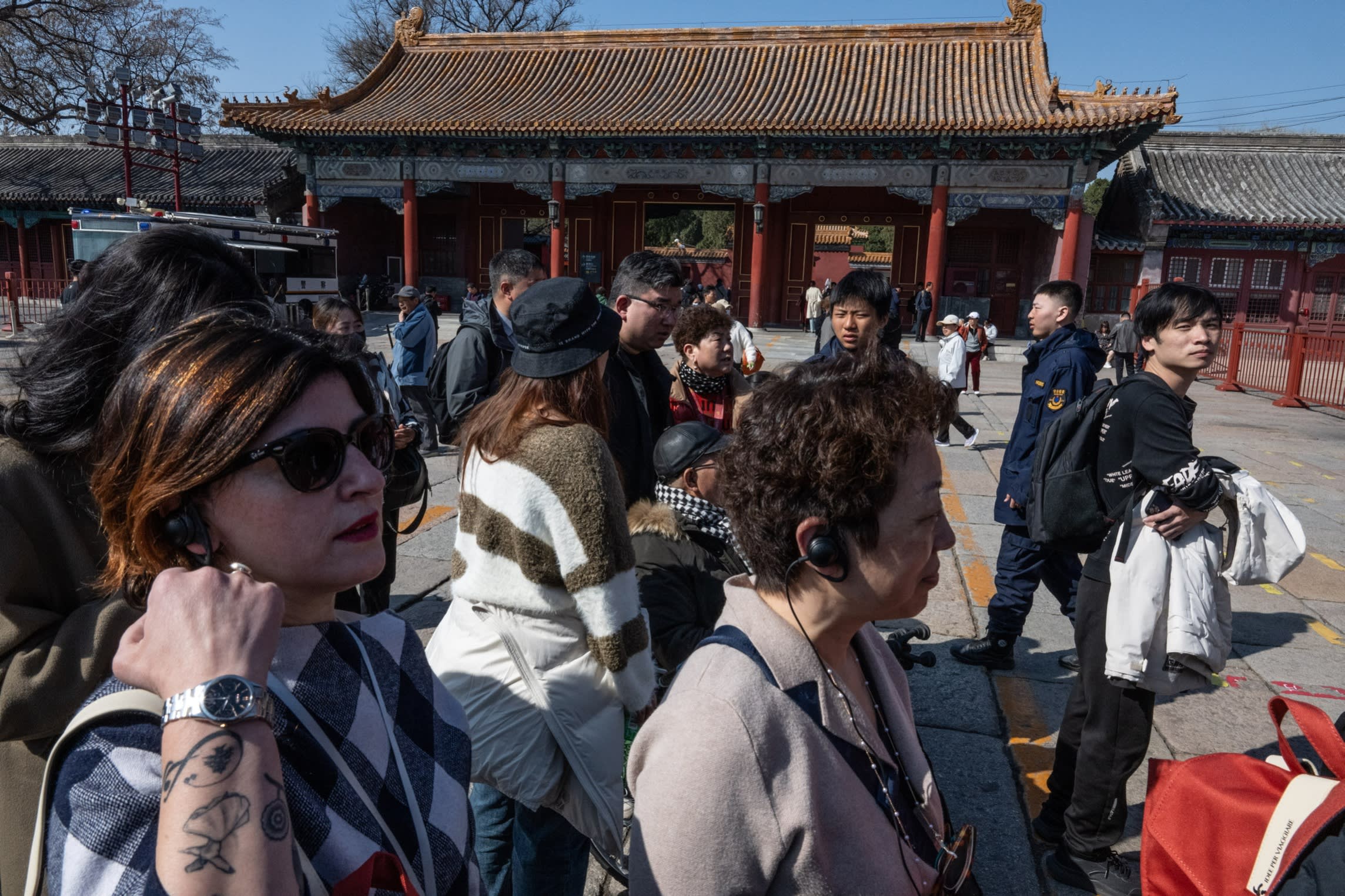China eases tourist visa restrictions to boost economy
4 min readLugging his backpack around the Forbidden City in Beijing, French tourist Xavier counted himself as “lucky” to be at the vanguard of China’s latest campaign to reinvigorate its flagging economy.
The young traveller, clad in a woolly jacket and pink-tinted sunglasses, came to China last month after it abruptly announced visa-free access to citizens of France and five other mainly European countries late last year. Starting on Thursday, visitors from Austria, Belgium, Hungary, Ireland, Luxembourg and Switzerland were also allowed to enter visa-free.
This is in addition to mutual visa-waiver deals with Singapore and Thailand, a reinstated visa-free agreement with Brunei that was suspended during the pandemic and visa exemptions for those on short transit visits to the country.
The moves are aimed at reviving a multibillion-dollar international tourism industry that is still struggling to recover from the Covid-19 pandemic, geopolitical tensions and a weak economy. The visa waiver “saved me a lot of money”, said Xavier, who had paid $120 for a visa when he visited China in 2019.
More than a year after Beijing lifted strict Covid controls that cut off the country from the rest of the world for almost three years, foreign visitors have yet to return in force. Last year, China recorded 35mn entries and exits by foreign nationals, only a third of the nearly 98mn in 2019. State media outlets have estimated that between 2020 and late last year, the pandemic cost China $362bn in lost international tourist revenue.

Aside from the impact on the tourism industry, officials worry that the reduction of foreign arrivals threatens to further isolate China and contribute to negative perceptions of the country abroad.
“If they [foreigners] don’t come, there will be a gap because they won’t understand China’s current development,” said Dai Bin, president of the China Tourism Academy, a government think-tank, and a member of China’s top political advisory body.
Offering visa-free access to some European and Asian citizens might also be a subtle way for Beijing to split public opinion in the western-led bloc as it ratchets up its geopolitical tug of war with the US, analysts said.
“I think there is a general mobilisation of policy and resources to attract foreigners back to China, but within that campaign, they differentiate between US and Five Eyes securities allies [Australia, Canada, New Zealand and the UK] and the rest of the US allies,” said Yun Sun, senior fellow and co-director of the east Asia Program at the Stimson Center.
During the first half of last year, more inbound tourists began coming to China, but they were mainly for “essential” travel, such as for family or business, not tourism, said Peng Han, chief analyst at Travel Daily, a Chinese tourism industry media company.
“The market recovery has been slow, mainly affected by multiple factors such as international flight capacity and visas,” he said, adding that the volume of international flights in January 2024 had recovered to about 65 per cent of the same period in 2019, though this varied according to destination.
Xu Xiaolei, chief brand officer at state-controlled travel agent China CYTS Tours Holding, said the visa-free pilot schemes, which will last up to one year for most countries, “should have a greatly stimulating effect”. “It’s essentially the highest courtesy that can be bestowed upon tourists,” Xu said.
After visa restrictions were lifted, about 214,000 people from France, Germany, Italy, the Netherlands, Spain and Malaysia visited China in December, up 28.5 per cent from November, according to data from the National Immigration Administration.
Foreign visitors to China now require access to the ubiquitous Chinese payment apps WeChat and Alipay to pay for everything from taxis to restaurants. This can be difficult with foreign credit cards, though WeChat and Alipay are working to resolve this and the central bank has released a guide for foreigners on China’s payment systems.

Sonya and Benoist, a French couple visiting Beijing, said that despite some “stress” they eventually managed to incorporate their credit card into WeChat. “Sometimes it doesn’t work but everybody agrees with cash. So it’s OK,” said Sonya.
With Beijing broadening its anti-espionage laws and authorities imposing exit bans on some foreigners, Stimson’s Sun said security was “people’s primary concern”.
Travelling alone for the first time, Céline Bardote Machado, a 29-year-old French woman, said however that Beijing’s extensive police and closed-circuit television cameras made her feel “very safe” from street crime.
Spaniard Dulce Maria Quesada, who was visiting the Forbidden City on Thursday, complained about the difficulty in accessing western social media, blocked under China’s so-called Great Firewall. “It’s impossible to communicate with relatives and friends,” she said.
Ye Qing, a Dutch businesswoman who has been living in Hong Kong for the past eight years, said the visa-free access encouraged her to visit China more often and was struck by how few foreign visitors there were. “I remember my first time going to China in the 90s — people wanted to take pictures with foreigners . . . And now it’s back again,” she said.
While visa-free access may be on the cards for other countries such as South Korea and Japan, Dai of the China Tourism Academy doubted the offer could be extended to the US and its closer allies.
“I recently spoke with a Chinese security official who said you can’t see everyone as good,” Dai said. “I replied that as someone in the tourism industry, I cannot view everyone as bad.”



